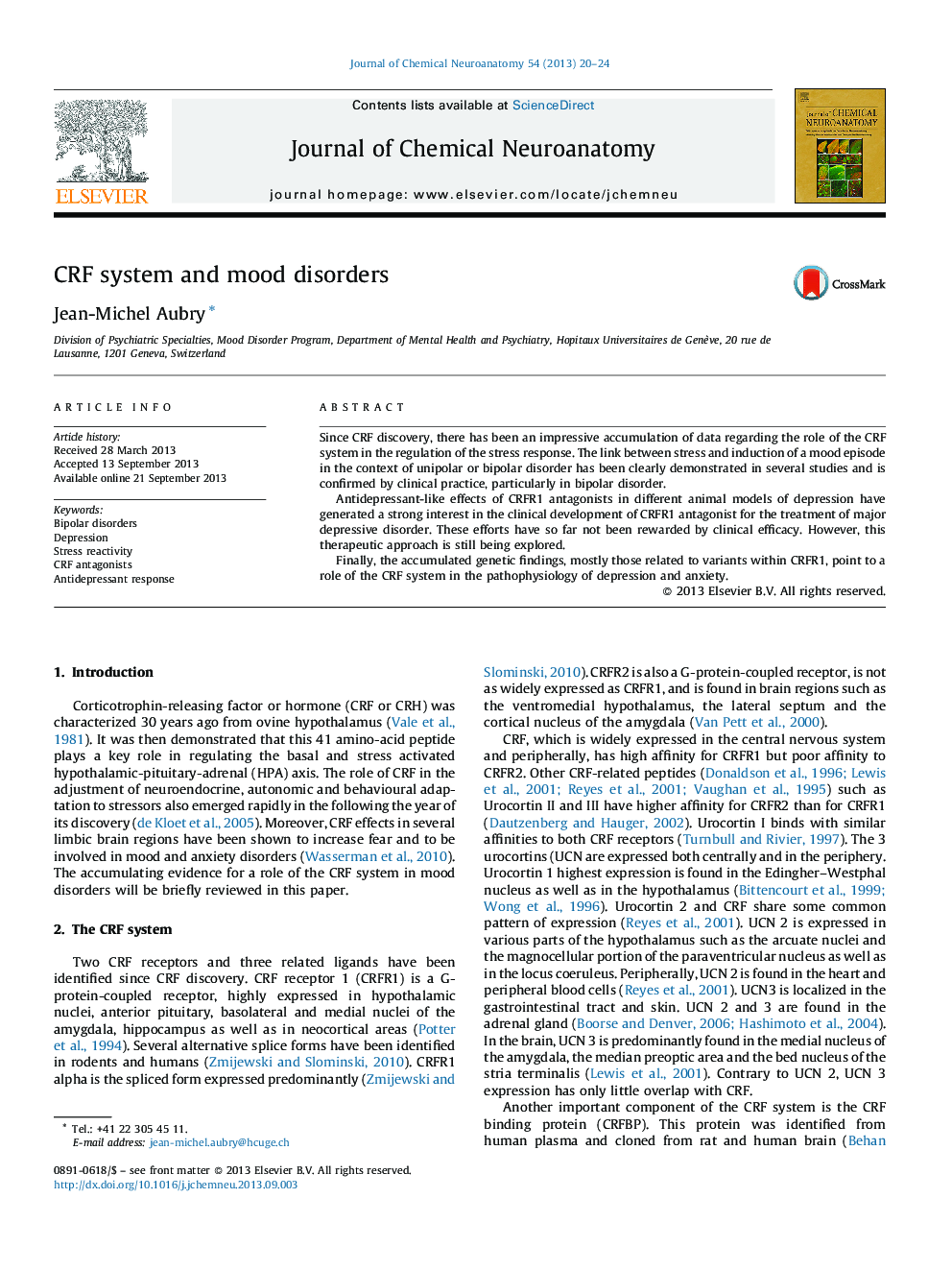| Article ID | Journal | Published Year | Pages | File Type |
|---|---|---|---|---|
| 1988864 | Journal of Chemical Neuroanatomy | 2013 | 5 Pages |
•CRF and CRF system play a major role in the regulation of the stress response.•Clinical development of CRFR1 antagonists as antipressant has not been rewarded by clinical efficacy so far but is still being explored.•The accumulated genetic findings, mostly those related to variants within CRFR1, point to a role of the CRF system in the pathophysiology of depression and anxiety.
Since CRF discovery, there has been an impressive accumulation of data regarding the role of the CRF system in the regulation of the stress response. The link between stress and induction of a mood episode in the context of unipolar or bipolar disorder has been clearly demonstrated in several studies and is confirmed by clinical practice, particularly in bipolar disorder.Antidepressant-like effects of CRFR1 antagonists in different animal models of depression have generated a strong interest in the clinical development of CRFR1 antagonist for the treatment of major depressive disorder. These efforts have so far not been rewarded by clinical efficacy. However, this therapeutic approach is still being explored.Finally, the accumulated genetic findings, mostly those related to variants within CRFR1, point to a role of the CRF system in the pathophysiology of depression and anxiety.
